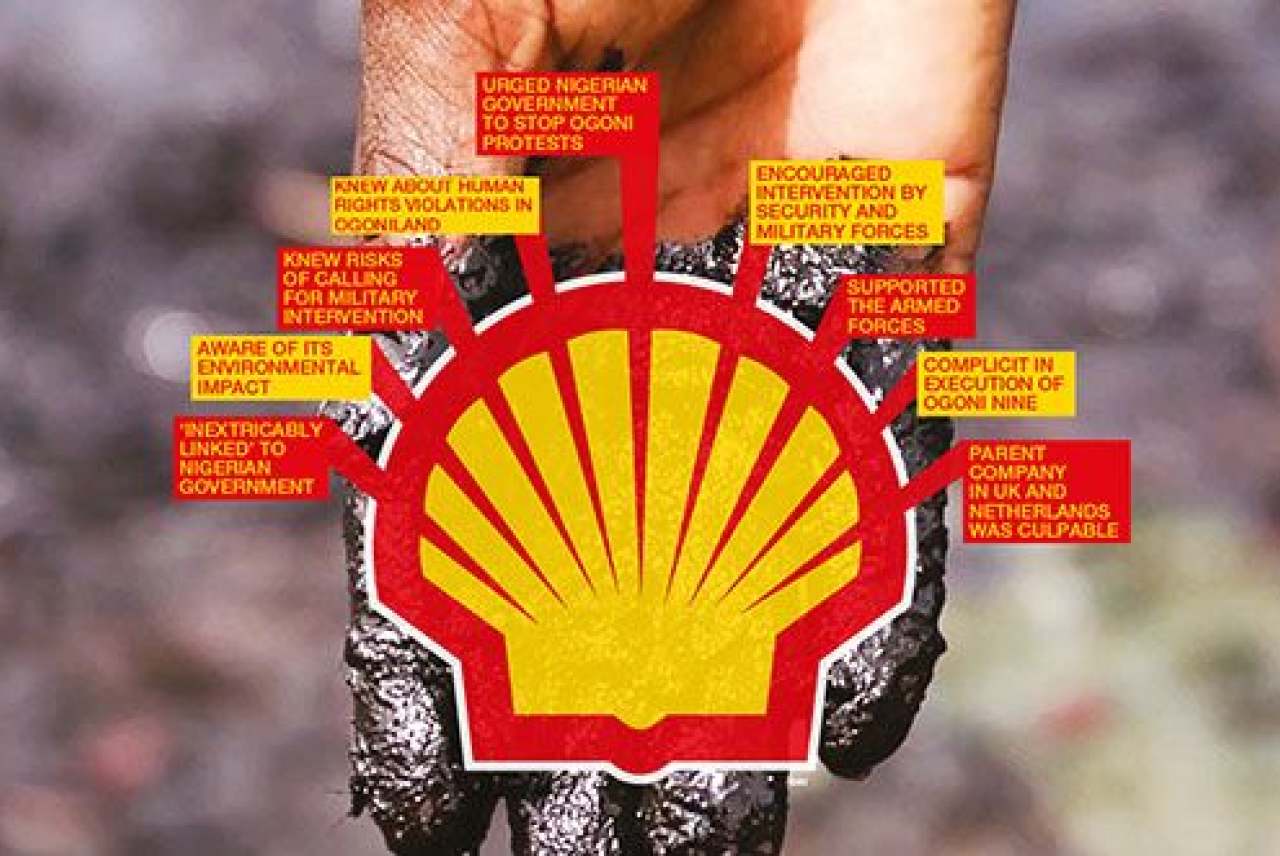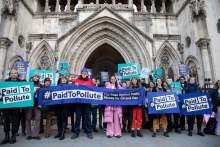Following five years of legal battles, the UK Supreme Court has ruled that cases brought against Shell over pollution in Nigeria can now be heard in English courts. The decision overturns an earlier ruling by the court of appeal.
Lawyers have described the decision as a “watershed moment” for multinational company accountability – potentially paving the way for holding companies such as Royal Dutch Shell plc to be held to account for their subsidiaries' actions, in this case Shell Petroleum Development Company of Nigeria.
Daniel Leader, a partner at law firm Leigh Day, commented:
“This supreme court judgment gives real hope to the people of Ogale and Bille, who have been asking Shell to clean up their oil for years. We hope that now, finally, Shell will act.... Increasingly, impoverished communities are seeking to hold powerful corporate actors to account and this judgment will significantly increase their ability to do so.”
It was previously argued that Royal Dutch Shell plc could not be legally responsible for the harm caused to the communities by a subsidiary and therefore the case should not be heard in England.
Leigh Day, which represents the two Nigerian communities, successfully argued that Shell, one of the world’s 10 largest corporations by revenue with assets of more than $400bn (£290bn), must answer for the environmental failures of its subsidiary here in the UK because the company is registered in London.
No clean up, no justice
Over the years Shell has faced multiple lawsuits over its role in Nigeria and other areas.
In the 1980s and 1990s, it came to light that Shell’s activities were seriously damaging the Niger Delta and other regions.
The land became un-farmable and local drinking water supplies unusable following oil blowouts, spillages, oil slicks and other pollution. “It was clear to me,” Shell’s ex-head of environmental studies confirmed in 1996, “that Shell was devastating the area.”
When the local Ogoni people protested, the Nigerian government responded with lethal crackdowns, encouraged by Shell. “Despite knowing serious human rights violations were almost inevitable,” according to Amnesty International, “Shell asked for the intervention of the Nigerian security and military forces.” In 1990, 80 peaceful protesters were killed.
In 1993, nine campaign leaders were imprisoned, tortured and eventually executed by the Nigerian State. Throughout the period, Shell continued to discuss solutions to the “Ogoni problem” with the government that was imposing the crackdown.
International impunity
Many of these victims remain without redress.
“You can never, never defeat Shell in a Nigerian court,” the leader of the Ogale community King Okpabi stated during the 2018 UK Court of Appeal hearing. “A case can go on for very many years. You can hardly get a judgment against [an oil company] in Nigeria. Shell is Nigeria and Nigeria is Shell.”
King Okpabi said that the English legal system had been their only hope for obtaining justice following the earlier ruling against the community.
Civil society has long argued that the case represents the failure of international accountability.
A report released last year by Friends of the Earth, Amnesty International and other NGOs stated,
“The tragic and unresolved situation in Ogoniland demonstrates the urgency for governments – including those of the UK and the Netherlands where Shell is headquartered – to issue strong legislation mandating companies to respect human rights and environmental standards across their global operations.”
"This landmark ruling could spell the end of a long chapter of impunity for Shell and for other multinationals who commit human rights abuses overseas,” Mark Dummett, director of Amnesty International’s Global Issues Programme, said.






